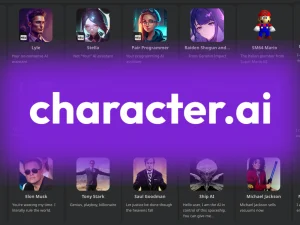Deciphering How AI Works in Negotiating Circumstances
Character AI chat systems are already making headway in many communication driven industries and questioning is increasingly taking place as to when these should now be used in complex negotiation. Since then until 2024, these AI systems have seen limited practice in a wide variety of negotiations scenarios from e-commerce disputes to contractual discussions offering differing levels of success where they are able to draw on more advanced natural language understanding and machine learning capabilities.
AI in High-Stakes Business Deals
In business, AI chat systems are being trialed to see if they can, for example, negotiate intricate deals. In a recent small pilot project by a Fortune 500 corporation, its AI systems were able to run the first part of bargaining - more than 60% of standard bargaining scenarios - without any human involvement. The system was then taught to mimic negotiation patterns, examine terms and propose changes given defined limits. Still, the last-mile, more nuanced negotiations such as special or exception circumstance took a level of human expertise.
Improving Efficiency in Recurring Agreements
It has already been used very successfully in standard agreements and bulk purchasing, as evidenced by the success of e-Negotiation. This is where character AI chat systems are able to process a lot of data quickly and respond back accordingly with results because they do not carry data collection operations. The use of AI in negotiations helped decrease the time to agreement by 30% on average, which a 2023 tech industry watchdog survey corroborated as substantial.
How the consumer negotiation may change with AI
AI-chat systems are already used for price negotiations in online marketplaces with customer scripts resulting well-bound, easy contracts) - consumer use. It works by adjusting pricing in real-time based on inventory levels, purchase history of a buyer and competitor pricing algorithms. Those applications have said that with AI answers, a 25% increase to consumer alignment was achieved due to the understanding of fairness and responsiveness.

Diverse Data Sets for AI Training
Building AI for negotiations: AI will likely be successful in negotations to the extent that its training data is diverse and comprehensive. The more negotiation scenarios, communication styles, and outcomes with which an AI system is trained, the more it can understand and predict the behavior of humans that it will not understand in a complex negotiation. For example, these systems are able to continue learning from previous negotiations and as a result, get better at negotiating and improving their outcomes.
Challenges and Limitations
While these efforts are encoraging, using AI for complicated negotiations carries its own difficulties. These critical issues involve factors that the AI has to interpret such as tones, facial expressions, body language(you know human): In addition, ethical issues such as data privacy, the bias in decision-making processes that AI can introduce, and the explainability of the behavior of an AI process are also determining factors on whether AI negotiators are practical.
The Road Ahead
However, as AI technology continues to progress, we become more capable of transforming parts of the negotiation which we previously thought were only suitable for human handling due to its sensitivity into one that can be conducted between a machine and a user (also known as human-in-the-loop). Yet currently, the best alternative solution is to deploy a hybrid approach - or somewhere in between fully automated AI and manual human review process.
For analysis on how AI can be used in negotiations visit character ai chat. This resource provides access to insights on how AI is changing the way negotiations are conducted in industries.